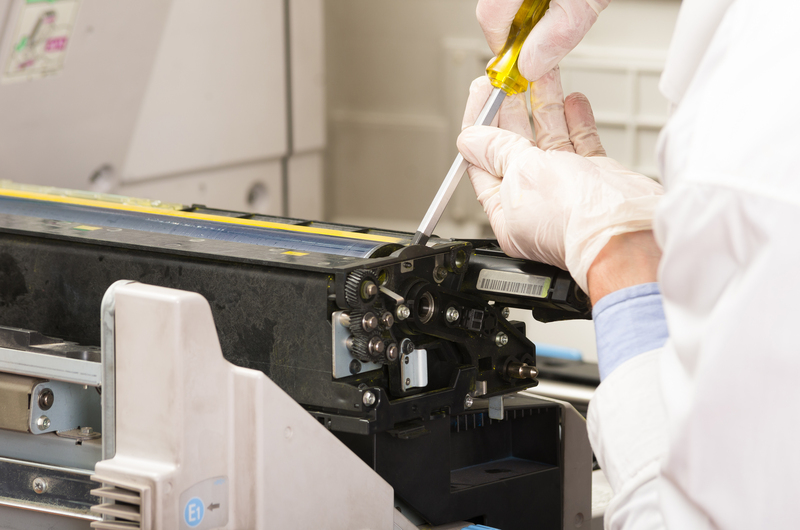The Impact of Recycling on the Environment and How You Can Help
Posted on 17/09/2024
In today's world, the importance of recycling has become more crucial than ever before. With the increasing amount of waste and pollution, it has become a necessity to take action towards preserving our planet. Recycling is not just about reducing waste, but it also plays a vital role in protecting the environment and conserving natural resources. In this article, we will discuss the impact of recycling on the environment and provide you with ways you can help make a difference.
The Importance of Recycling
Recycling is the process of converting used materials into new products rather than disposing of them as waste. It involves collecting, sorting, and processing materials like plastic, paper, glass, and metal to be used again in manufacturing processes. By doing so, not only are we reducing the amount of waste sent to landfills and incinerators, but we are also conserving natural resources such as trees, oil, and water.
One of the most significant benefits of recycling is the reduction of greenhouse gas emissions. When materials are recycled instead of being disposed of in landfills or burned in incinerators, it leads to a decrease in carbon dioxide and methane emissions. These gases contribute to climate change and air pollution which are major environmental concerns.
In addition to reducing emissions, recycling also helps conserve energy. The production of new products from recycled materials uses significantly less energy compared to producing them from raw materials. For instance, it takes 95% less energy to produce aluminum cans from recycled material rather than mining bauxite ore. Moreover, by using recycled materials in manufacturing processes, we reduce the demand for natural resources and consequently minimize their extraction.
Another important aspect of recycling is its impact on our oceans and marine life. According to Ocean Conservancy, 8 million metric tons of plastic end up in our oceans every year. This not only harms marine animals but also contaminates the water and poses a threat to human health. By recycling plastic, we can reduce the amount of plastic waste in our oceans and protect marine life.

How You Can Help
Now that we understand the importance of recycling let's look at some ways you can make a difference in your everyday life.
1. Start by separating your recyclables from your regular waste. This could be as simple as having separate bins for different materials in your home.
2. Educate yourself on what materials are recyclable in your area and how to properly recycle them. Improperly recycled materials can lead to contamination and end up in landfills.
3. Buy products made from recycled materials. This creates a demand for recycled materials and supports the recycling industry.
4. Reduce your consumption of single-use items like plastic bags, water bottles, and straws. Instead, opt for reusable alternatives.
5. Participate in community cleanups or volunteer for organizations that focus on promoting recycling and reducing waste.
By making small changes in our daily lives, we can collectively make a significant impact on our environment and help create a more sustainable future.
The Pros and Cons of Recycling
As with any other action, there are both pros and cons to recycling. Let's take a look at some of them.
Pros:
- Reduces waste going to landfills and incinerators.
- Conserves natural resources.
- Reduces greenhouse gas emissions.
- Saves energy.
- Protects marine life.
- Creates job opportunities in the recycling industry.
Cons:
- Requires resources (such as transportation) to collect and process materials.
- Can be costly for some municipalities to implement.
- Some materials cannot be easily recycled (e.g., Styrofoam).
- Contamination can render materials unrecyclable.
- The demand for certain recycled materials may fluctuate, affecting their value.
While there may be some challenges with recycling, the benefits far outweigh the cons. With proper education and implementation, we can address these challenges and continue to reap the benefits of recycling.

Takeaways
- Recycling is crucial for protecting the environment and conserving natural resources.
- It reduces greenhouse gas emissions, saves energy, and protects marine life.
- Simple changes in our daily lives can make a significant impact on our environment.
- Educating ourselves on proper recycling practices is essential for its effectiveness.
- While there may be some challenges, the benefits of recycling far outweigh any negatives.
Conclusion
In conclusion, it is evident that recycling plays a crucial role in preserving our planet and creating a sustainable future. By reducing waste, conserving resources, and protecting the environment, we are not only benefiting ourselves but also future generations. As individuals, we must take responsibility and actively participate in recycling efforts to make a positive impact on our environment. Remember, every action counts, so let's work together towards a greener and cleaner world.
Latest Posts
Why Belsize Park Might Be Your Next Home
Belsize Park Property Investment Tips
Belsize Park Realty: Buy and Sell Tips





